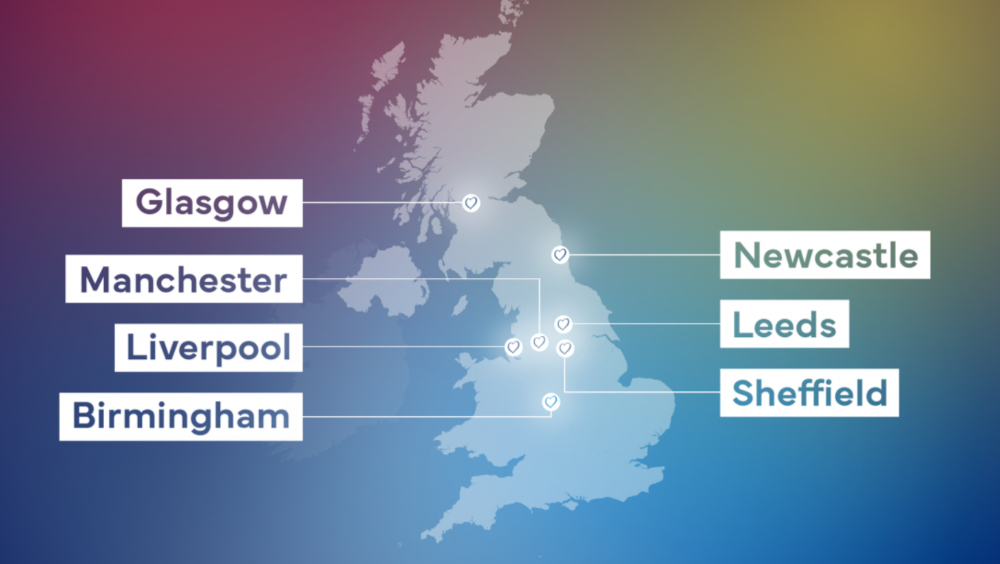
The shortlist of UK cities that could host next year’s Eurovision Song Contest has been revealed, with seven locations in the running.
Birmingham, Glasgow, Leeds, Liverpool, Manchester, Newcastle and Sheffield will vie to stage the event in May.
Twenty cities expressed an interest, the BBC said, and those not making the shortlist include London and Belfast.
The UK was chosen to host the contest after organisers decided it could not be staged by Ukraine, the 2022 winners. UK singer Sam Ryder finished second at this year’s contest in Turin, Italy.
The decision to relocate it from Ukraine because of the ongoing war has led to a hotly-contested selection process between UK cities that want to attract thousands of visitors and the attention of around 160 million TV viewers around the world.
The BBC said the seven-strong shortlist was based on the cities’ ability to show they have “the capacity, capability and experience to host an event of this scale and complexity”.
A statement added that the process was “heavily weighted towards demonstrating past experience in hosting major international events, as well as being able to demonstrate their credentials in hosting a celebration of contemporary music”.
London would have met those criteria but didn’t make the cut, at a time when both the BBC and government are seeking to move events and opportunities outside the capital. Others to miss out include Aberdeen, Brighton, Bristol and Darlington.
As it is, five of the shortlisted cities are in the north of England, with Glasgow representing Scotland and none further south than Birmingham.
No Welsh cities bid, and Belfast was the only potential contender from Northern Ireland.
The seven remaining cities will be scored on a set of criteria, the BBC said, including:
- “Having a suitable venue and sufficient space to deliver the requirements of the Song Contest
- “The commitment that can be made by a city or region to hosting the event, including the financial contribution
- “The strength of the cultural offer which includes off screen local and regional activity as well as showcasing Ukrainian culture and music
- “And alignment with the BBC’s strategic priorities as a public service broadcaster, such as providing value to all audiences and supporting the creative economy in the UK”
Source: BBC News

